My Multi-Millionaire Friend Who Feels Nothing
Thoughts on the diminishing returns of wealth and why modern riches buy so little
I was talking with a business owner friend yesterday and he told me that — thanks to the market’s recent run-up — his net worth cracked $5,000,000 for the first time.
Yet he felt nothing.
In fact, he felt a little more depressed than usual partly from some business issues, but mainly from the realization that it’s just a number on a screen and the amount he believes he would truly need to “transform” his day-to-day life experience is multiples that number… if it’s even attainable at all.
It got me thinking deeply about this topic again which, as you know, is one of my favorites. It’s the paradox I’ve been writing about for years — the strange emptiness that comes once you realize the pursuit of wealth has no obvious finish line. Because once you cross it — “it” being whatever arbitrary line you draw — nothing truly changes.
People love to say how the same traits that helped you make your first million will keep you chasing the next one. That once you start playing wealth and status games, you can never stop. I wrote about this in The High-IQ Trap. Others say the pursuit of money isn’t about money at all — it’s about competition. Like it’s some kind of sport.
But if that’s true, it’s worth asking…
What exactly are you winning?
Who are the people cheering for you?
What are the trophies and accolades of this game in the modern era?
The Return on Wealth Has Collapsed
Today, incremental wealth beyond an already substantial level has a shockingly low return on life satisfaction, adventure, and self-actualization compared to the not-too-distant past.
A couple hundred years ago, such wealth afforded exclusivity. You could access experiences and materials literally no one else could have, let alone even see or often even knew existed:
You could eat foods others would never taste.
Travel to lands they’d never see.
Read books they’d never find
Listen to music they’d never hear.
Be healed or repaired while others would suffer chronically and endlessly.
Physically meet and see what other interesting or accomplished people in the world looked like — because information and photographic imagery weren’t instantly available to everyone.
Today, the world has inverted because technology (i.e. transportation, energy, medicine, communication) has democratized experiential pursuits.
Almost nothing on Earth is exclusive anymore.
Experiential Parity
I’m going to call this “Experiential Parity” — the flattening of access between the wealthy and everyone else.
Anyone with even modest means can now:
Visit tropical islands, 5-star resorts, or Michelin-star restaurants.
Eat global cuisines that kings once couldn’t dream of.
Access infinite information instantly.
Travel across the planet in the same number of hours as the richest person alive.
The difference between the richest human and the average one has never been smaller in sensory or experiential terms in the history of human civilization.
The Illusion of Material Superiority
OK so then what’s left to distinguish the extreme “rich?”
A larger house? More square footage to sleep in?
A more expensive car that goes from A to B no faster than any other car and sits in a parking lot for just as many hours a day?
A private jet that saves you a few hours once in a while?
A bigger piece of land to walk across when you could walk through Yosemite or Banff for free? As if land being “yours” somehow insulates it from natural disasters, accidents, conflict, or war?
It’s true that a billionaire can sail the Mediterranean on a $100 million yacht and pour $10,000 bottles of champagne off the bow — and you can’t. But that’s a cartoonish version of pleasure — a spectacle for others, not an experience for oneself. The billionaire’s physical and sensory reality is identical to yours on a smaller day boat with champagne you’ll actually drink.
It’s all just wrapping — gold instead of plastic, marble instead of gypsum. These are human inventions, not real distinctions. Even “property rights” are a modern fiction. The idea that land confers superiority or meaning is cultural and legal, not physical or biological.
The Biological Truth
Underneath all of this superficial “wrapping” is still just a fleshy body.
You share roughly the same biology, lifespan, and mental hardware as everyone else — a Space billionaire or a Starbucks barista.
The only things that truly belong to you are:
Your health (your experience of being alive and doing physically enjoyable or challenging things)
Your relationships (emotional experience with your friends and family)
Your sensory moments (the texture of daily life — the smell of coffee, the sound of laughter, the warmth of sunlight, sand between your toes, mist from the waves)
Everything else is entirely “made up.”
The Real Game
So if you’ve already “won” the experiential game — meaning you can eat, travel, rest, and experience anything you want — the real game actually begins.
And it’s not the material game.
It’s not “how much can I accumulate?” but “how deeply can I live?”
Because once experiential parity is achieved, the pursuit of more wealth or “things” is just the pursuit of a larger wrapper around the same human core. It’s like a mask. Why not show your actual face?
The Predictable Pushback
Whenever I write about wealth or the rough idea of “enough,” the same rebuttals appear:
“Yeah, but what about people living in high-cost-of-living cities?”
“What about kids, school systems, healthcare, commuting, career stability?”
“What about legacy — teaching your kids about structure, responsibility, and success?”
They’re fair questions on the surface, but they reveal a lot.
They expose the mental lock-in that keeps even exceptionally intelligent and substantially wealthy people from changing anything about their lives.
The truth is, as they say, you can just do things.
I say this as someone married with two kids who walked away from Wall Street at 33, started a business, left the city for a rural town, stopped commuting, and eventually moved to another country altogether.
No map. No corporate safety net. No family trust fund. I simply just made a decision.
And it’s not about stopping work. It’s about re-writing the texture of your life… weaving your business pursuits with your personal pursuits until they feel like a sort of continuous fabric.
I still run my business. I’m growing it. I’m having fun building it. But I’m also living.
Does that mean I’m leaving some money on the table by not working a 12- to 14-hour day on Wall Street? Absolutely, yes. Because once you accept the diminishing returns on wealth, you stop obsessively chasing it. You can live more intentionally, and if wealth comes over time, perhaps more slowly, then that’s great.
But in the past two years, I’ve visited ten countries — most of them with my kids. They’re bilingual now, developing a kind of cultural ambidexterity that no classroom could teach.
I work when I want to work. My wife and I spend real time together. Our lives have rhythm and texture… like we’re breathing fresh air everyday.
The “grind” is mostly a story we tell ourselves to justify inertia.
And as for legacy — your kids may learn far more from watching you build a life on your own terms than from hearing you preach about discipline while you’re exhausted and not even present.
Freedom, curiosity, and self-direction are lessons too.
Yes, it’s harder with kids, but it’s also clearer and more freeing because you start to realize what time actually costs and that you literally only live once.
Mental Disorder or Coding Ruse?
At some point, the modern pursuit of substantial wealth begins to look less like ambition and more like pathology.
If almost everything that once made wealth meaningful has been democratized — and if the richest person alive can’t buy a better meal, a truer friendship, or a longer life — what exactly are we all still chasing?
At that point, the endless drive for more starts to look like one of two things:
a socially acceptable mental disorder involving competitive abstract status-signaling, or
the greatest piece of psychological “coding” ever written — a collective illusion convincing the majority of people to keep playing a game long after the prizes have lost all of their value.
Maybe it’s both.
What’s the Actual Number?
It’s worth taking a crack at defining what “substantial wealth” could mean.
My definition is simple: Substantial wealth is having a net worth greater than what’s needed to generate the average annual US household income using a 100% passive investing strategy to yield a blended 4% interest/dividend return. In other words, to earn the average income doing nothing.
So, the average HH US income is ~$120,000 (the median is ~$80,000).
$120,000 / 0.04 = $3,000,000
This frees you up to earn at or above the median HH income doing nothing at all — affording you time for personal hobbies, life’s simple pleasures, business ideas, or any combination.
That, to me, is life-changing, so long as you reset your expectations and embrace the perspective we’ve just explored.
To be clear, I don’t have this myself. I just find it striking how many people well beyond this number keep living much the same way, chasing the same routines or stresses, as if the wealth changed nothing.
So, “substantial wealth” is having a net worth above $3 million, but true wealth lies in how you use it to live intentionally.
But what if $3 million falls short in your high-cost-of-living area or lifestyle? Pause and ask yourself: Could moving, downsizing, or resisting the pull of an ever-escalating lifestyle open new possibilities?
I left Wall Street for a life abroad with my family, but your path is yours to choose.
The number is just a tool — it could be higher or lower — the real goal is a life aligned with your values… but values that you’ve audited and perhaps rewritten.
Closing Thought
Pursuing substantial wealth might just be driven by the illusion of progress after the real game is already won.
We’re all just bodies — some with shinier shells, maybe.
The richest man alive can’t buy a better sunset, or a longer laugh.
More money doesn’t equal more pull-ups or a faster marathon.
The return on wealth is collapsing, but the return on intentionality is infinite.




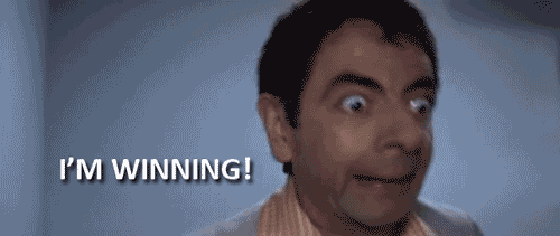
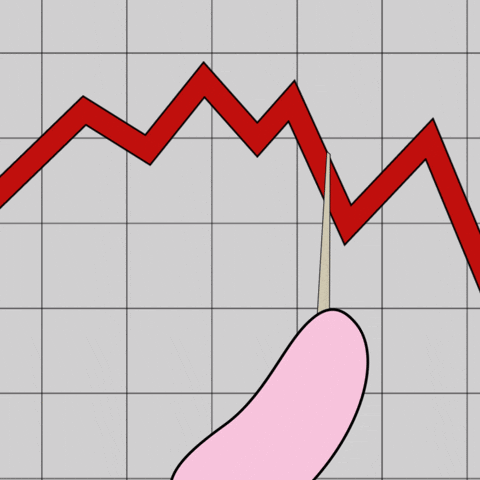

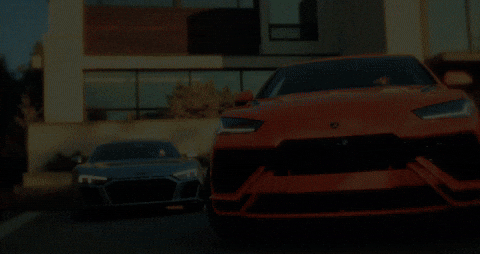
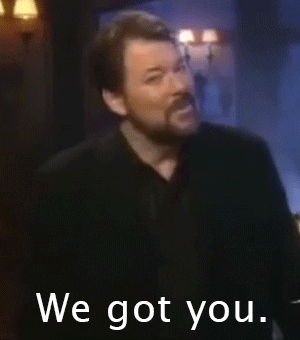


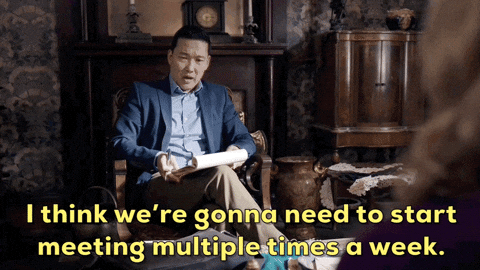
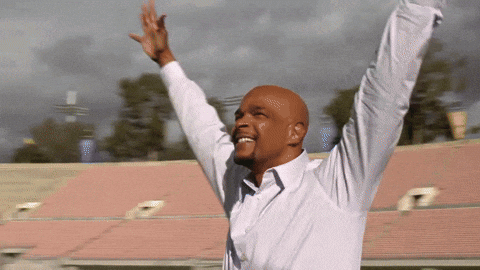

love your writing. however the gifs while trying to read is VERY annoying